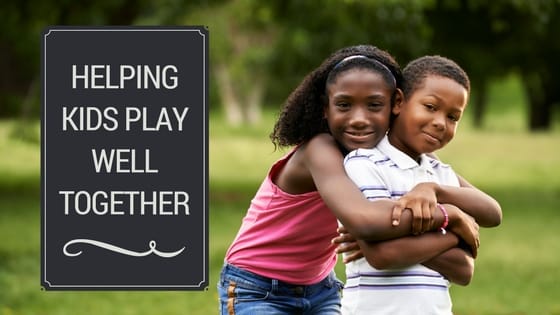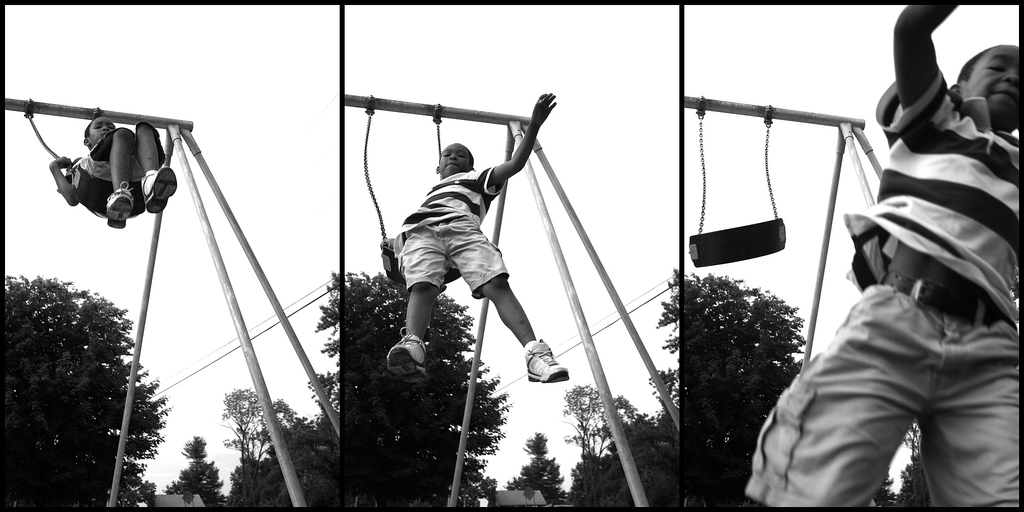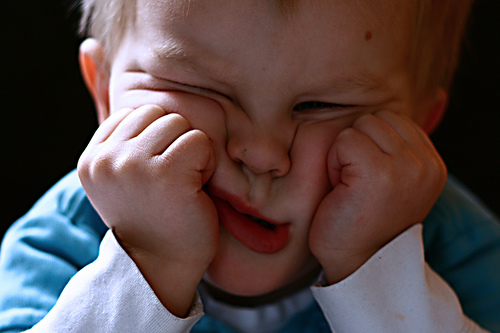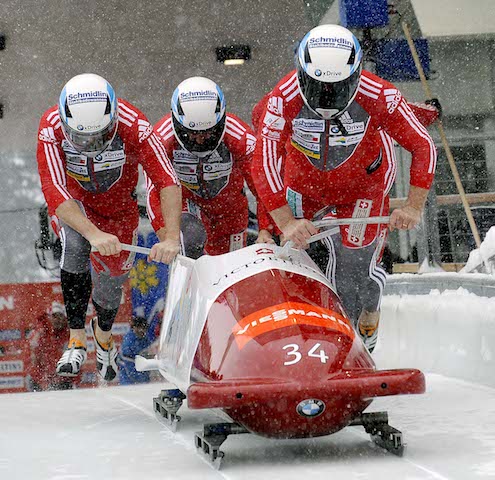Last time on the blog, we talked about what you can do to help kids reconnect after a blow-up… without forcing them to apologize to each other.
You got 6-steps and mini-scripts for how to calm everyone down, help kids understand each other’s perspective, and come up with a solution.
One of our readers asked a great question…
What if [the conflict] is one-sided? One kid is hitting and slapping and the other is asking him to stop and he doesn't?
So today, we’re talking about how to handle a child who is hitting. Just like last week, you’ll get 6 steps and a mini-script for each step!
Real Life Example – Teaching a Child to Stop Hitting Other Kids
“Sam” is a 5-year-old. On the school playground, he walks around from child to child, hitting each of them. The kids he hits are children that Sam plays with often and considers his friends. From what I can see, his hitting is completely unprovoked. What do I do?
Note: Even though this example is with a younger child these steps work for older kids and toddlers too!
What to do if a Child is Hitting: Six Simple Steps
Step 1: Be Curious
Even though this situation looks completely one-sided, it might not be. In our experience as teachers and parents, one-sided conflicts are less common. Maybe I hadn’t seen everything? Maybe the other child did something earlier that upset Sam and he’s still sad about it?
There have been many times in the classroom and in our home when I’ve gone into a situation thinking I knew who was the “aggressor” and the “victim”, only to find out that it was more complicated than my initial impression.
We don’t always see what happened the moment before the fight began, or we might not have seen what happened between the kids 1-2 hours earlier, or even 1-2 days earlier. The child who is acting aggressively may have had frustration building up from previous experiences that you weren't aware of.
Be curious because even if you saw it all happen, you might not have all the information.
Script: “Sam, I’m not willing for you to hit. Are you feeling sad (or mad) right now?”
Step 2: Understand the Communication Beneath the Behavior
Remember, behavior is communication. Dr. Ross Greene says, “Kids do well if they can. If they can’t, it’s because of lagging skills and unsolved problems.” This means that children will use their words if they can, but if they don’t have the verbal or social skills or if they are overwhelmed by their feelings, they might hit and act out instead.
In this situation, I knew that Sam had some lagging skills, even though he was a really bright child. I had a hunch that he was hitting kids on the head because he wanted to play with them (an odd strategy, for sure).
If you ask a child, “Why are you hitting?”, they may not actually know why. So, try this script instead…
Script: If you don’t know why Sam is hitting, ask him, “What are your hands trying to tell us?” Or you can make a guess like, “I see you hitting kids. Is this your way to play with them?.”
Step 3: Be a Coach
After talking to Sam, I found out that his hitting was in fact, an attempt to play and interact with other kids! He was hitting because he didn’t have the verbal and social skills to ask the other kids to play with him. So, I suggested words he could use to enter into a game that other kids were playing. Once he started using these words, he stopped hitting other kids. Here’s what I said…
Script: “When you want to play with other kids just ask them, ‘Do you want to play?’. Then they will understand your message. They don’t understand your message when you hit them.”
Step 4: Make Things Better
When one child hurts another–or damages property–encourage them to “make it better” or to make amends. For example, if a child rips a page of a book, they can help tape it. If they hurt another child, they can give them some ice or a bandaid to help them feel better.
Kids are often embarrassed when they’ve made a mistake. They are especially embarrassed if their mistake hurts someone they care about. Talking to children in a “matter-of-fact” tone of voice is often the most effective. You don’t need to make them feel guilty, they probably already do. Parenting expert Alfie Kohn reminds parents that you don’t need to make kids feel bad in order for them to be good.
Script: If a child was hurt say, “I see Missy is crying. Hitting hurts. Quick! Get her an ice pack for her head! That’ll help her feel better.” If property is damaged you might say something like, “This page got torn out of the book. I’ll hold it together while you get the tape. I can help you fix it.”
Step 5: Help Kids to Reconcile
Sometimes kids are so embarrassed that talking and reconciling with the other child is just too hard. I get embarrassed too, when I make a mistake. Here are your options to support a child who doesn’t want to talk about it.
You Talk For Them
Here’s what this might sound like: “Sam wanted me to tell you that he didn’t mean to hurt you earlier. He was actually trying to say, ‘Hi, do you want to play with me?’ He likes playing with you and he wants to be your friend.”
Child Draws a Picture or Writes a Letter
Drawings and letters are great tools to encourage kids to reconnect. Young children might need help writing the words or crafting their message.
Script: “Sam, the other kids didn’t understand that you were trying to play with them when you were hitting. Do you want to write a letter to them or draw a picture so they know you want to be their friend and you can tell them what you are going to do differently next time?”
Step 6: Find Teachable Moments
A child who is struggling to connect or has some lagging social skills needs extra support. Siblings who are chronically bothering each other need support too. As a parent or teacher, sometimes when I see an opportunity for one child to connect with another I whisper in the child’s ear something that he could do.
Script: I whisper, “Sam, I know you’ve been wanting to connect with the other kids. I see that Missy is playing all by herself with the basketball. Maybe she would like to play with you?” or, “Sam, I see that Missy lost her shoes in the sand. She’s over there looking for them right now. Do you want to help her find them? Helping her is a way to be her friend”
Which one of these strategies are you going to use next time your child hits another? Leave it in the comments below. I read and respond to each of them!










I like your idea about “making it better”. Any advice on things regarding when something they broke can’t be made better?
Ex..my 4 year old son threw a dvd case at our 60 in tv because he did not like the purple characters that were currently on the TV. He broke the screen and the TV was not fixable.
Christi, yes, some things can’t be made better. Here are some other ideas (I’m making up examples that may or may not apply to you.) 1. You could encourage him to draw a picture about what happened as a way to apologize. 2. You can talk to him about what he wished he had done differently (now that he sees the outcome). 3. When his dad says that he’s disappointed because he can’t watch the game, the 4-year-old could offer his dad a hug.
The point is not to make the child feel shame. The goal is to encourage your child to have compassion for the people that he has impacted. Also, you can have a conversation with him so he knows all the safe things he can do when he feels upset (that won’t hurt other people or things).
Thank you. These are good suggestions
You’re welcome, Christi.
Agreed! So with younger children, I try to “be their voice” when I help them. If a 20-month-old hits an infant for example. I say something like, “Oh, the baby doesn’t like heavy hands. That’s why she’s crying. She’s saying ‘Ouch! That hurts me.’ If you want to touch the baby use gentle hands. Like this.” And because I understand that hitting the baby is an attempt to communicate and probably a sign that the 20-month-old needs something that they can’t verbalize I might say, “Do you want more of my attention? Have you had enough snuggles today? Or do you want to get a book that we can read together?”
Is that a helpful example?
Hi, thanks for that. It is a helpful example. However in our case, when we intervened, the child hit us as well.
When a child hits me I often say, “I’m not willing for you to hit me.” I can offer an alternative. “Would you like to go outside and run? Hit a pillow? Get a big hug?” After the child has done something else and calmed down then I can shift into teaching… we can talk about what else they can do, besides hitting, when they are sad/mad.
And I understand that with a young child they won’t always be able to control their impulses. The hitting may continue for a little while until their development and brain catch up, but I continue to provide safety for them and other kids around them.
What if the child is only 20 months old?
Much of the same steps can be used. You may need to adjust the language to be for a younger child. Is there a specific part that doesn’t seem like it would work for a 20 month old?
Hi, with 20-month-olds or younger, they won’t be able to tell what their hands are trying to tell us when they hit. Sometimes even older kids can’t verbalise their actions. Also younger children won’t be able to write a letter or draw a picture to reconcile. Thanks.
Great article and reminder. Particularly the part about feeling embarrassed if they do hurt someone else. This is very applicable to my own daughters (2 and 4), as well as the kiddos I work with in schools. Thank you!
So glad it was helpful, Nicole!
This is really brilliant as was your article last week. We used to have a lot of sibling rivalry but it is suddenly starting to evaporate. I have been working on having a positive and non judgemental approach to it and they are starting to play together. A lot of my inner work has had to do with you – reading your articles and your recommended reading (Currently reading The Conscious Parent by Dr Shefali Tsabari) and with my capacity for introspection and for being able to change my behaviour whenever i need to. But in a world where very few people parent empathetically, having websites like yours as a guiding light is invaluable. Thank you.
This is wonderful, Eva! Being positive and non-judgemental works wonders, doesn’t it? Great parenting comes from introspection, sounds like your kids are lucky to have you in their life! That’s a great book too!
Thanks for sharing great idea.
You’re welcome, Sayeda!
I love these ideas and strategies! So many parents are lost as to what to do when their children hit other children. Thank you for sharing! Linda Kavelin Popvov founder of the Virtues Project has written a book, The Family Virtues Guide that has similar strategies.
That’s wonderful, Sandra! Thanks for the resource. I haven’t run across Popvov’s work before.
You are welcome!
Wishing you a week filled with an abundance of joy and happy children :)
Sometimes I feel like my boys (2,5,8yrs) develop a toxic soup of maladaptive behaviours :( But what always helps is giving them the opportunity to have a “do-over”. For instance, I will take my toddlers hand and stroke his brothers shoulder while saying “see, you can play gentle”. This physical feedback helps. I also put on a funny voice and pretend to “reset” them like robots that are going to try again more gently. Great article!
I love doing “do-over’s”! And the funny voices and physical feedback are helpful too! We have a pretend “rewind” button that we use in our family!